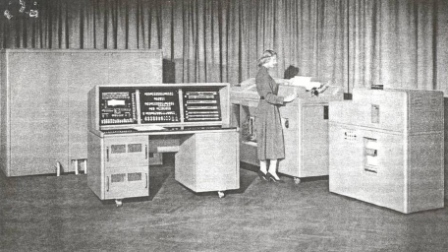Site blog
2014 is well and truly under way. We're starting to see the trends in enrolments as well as employment opportunities across the sector.
ICT Job Advertisements (Seek and Trademe)
Diploma enrolments and completions (2005 - 2012)
Take a moment to reflect on that. 3.2k students in 2012 and at least 2.3k jobs advertised this year, probably more. That's good news for people leaving education and looking for an IT jobs.
So, what is this blog actually about? That there aren't enough women in the industry or in ICT education.
Some studies suggest a ratio of 10 - 1, male - female. In New Zealand, visiting conferences, it's obvious that this isn't far off the mark. There are women there and often in senior positions, but significantly outnumbered by the males. In education there is some difference. I notice in the CITRENZ conference a larger number of females to males, which is good to see, but typical of education in general. In recent years, TPP has had a good ratio of males to females in class, with it being between 25 and 50%, but this year, the ratio is 8% in semester 1 and likely to drop with a second intake in semester 2.
There is evidence that many young girls do not even consider a career in ICT at school and I think this is something that needs investigating to work out why and how to fix it. There are tonnes of articles on the issue.
The stereotype of "computer nerds" and socially awkward males doesn't help, nor does the image of the ditzy woman office person from shows like the IT Crowd (as much fun as that show is!)
From my own experiences teaching, programming puts girls off. All too often its a case of "I can't do that" and then not even trying. Ironically, design work, such as Web Design, if they can be convinced isn't programming, is an area to which females tend to gravitate and enjoy and then program successfully anyway, in spite of their reservations.
I think one of the biggest challenges for women in IT is finding suitable role models to aspire to be like. Someone interesting, remarkable and potentially world changing. It's easy for boys: there are dozens we can all name. We can even name an LGBT role model in the industry quickly and easily with Alan Turing. But if I asked you to name a female role model, who could you name?
Here's some interesting ones:
- Ada Lovelace. Daughter of Lord Byron, the famous poet, widely considered to be the first computer programmer.
- Sheryl Sandberg. Facebook COO and author. Very famous for "Leaning in", an attempt to get more women into the corporate world in general.
- Grace Hopper. Mother of COBOL and writer of the first complier. Especially important for popularising the term "debugging" after the finding of a moth inside the US Navy Harvard Mark II computer.
- Erna Schneider Hoover. Inventor of the computerised telephone switching that revolutionised modern communications.
- Mary Lou Jespen. Founder of the organisation One Laptop Per Child.
Oh, and who can forget Anne Westfall, who programmed my favourite computer game as a kid: Archon! (which I just discovered you can get on Steam - there goes my free time!)
It's not widely known today that computer programming in the 40's, 50's and into the 60's was a female dominated field. Partly as an offshoot of it being considered "clerical" work I suspect. They were good at it and it wasn't until a big change in hiring practices in the 60's and 70's that saw the job become male dominated.

Ruth Engleback, one of NZ's first programmers, working on an ICT1201 computer in the early 60's. (Source)
There are some initiatives here in New Zealand to combat the dearth of females in the ICT industry. One that specifically interests me is the Programming Challenge for Girls and the NZ ICT Organisation has a women's group, but it seems too few to make a real difference.
So what do we as an industry do? I think some key areas are to find out why girls are not taking ICT in school first of all. Once we know why, then we have some direction to make it more attractive. Another area would be to celebrate all our role models, not just the male ones.
Ultimately, a more balanced industry is better for everyone.